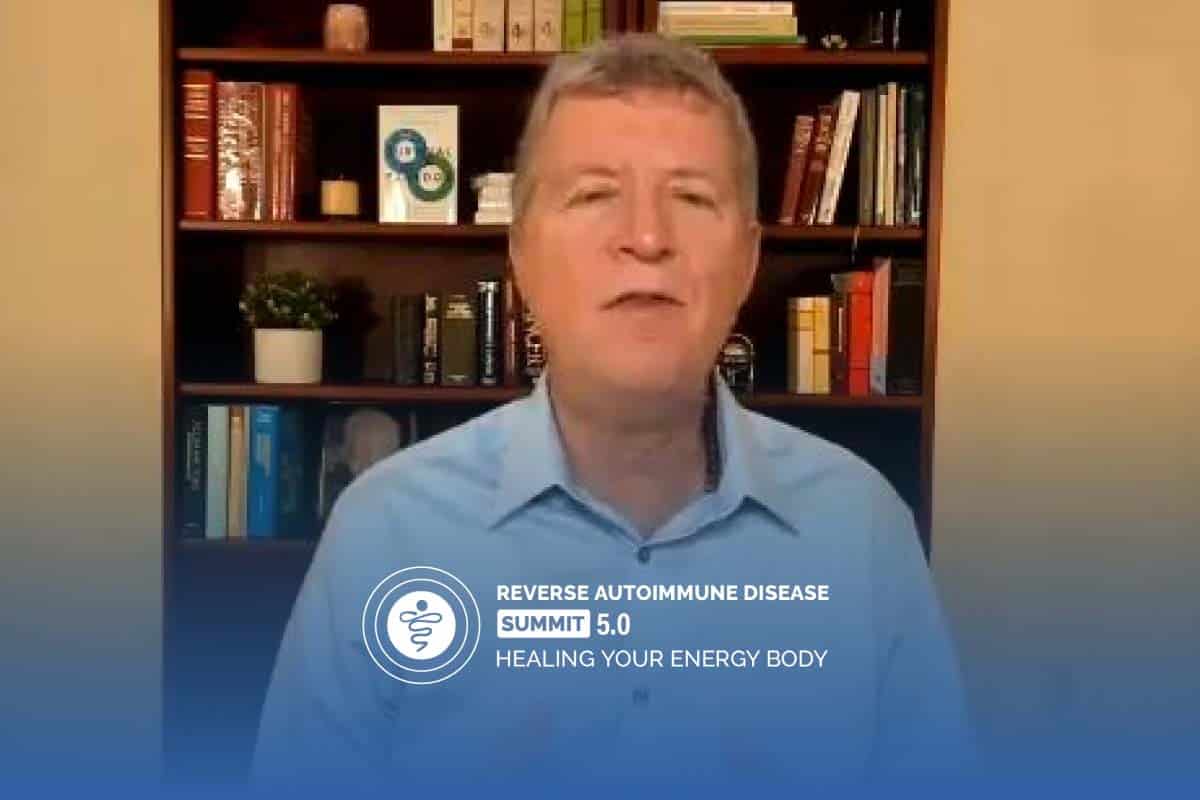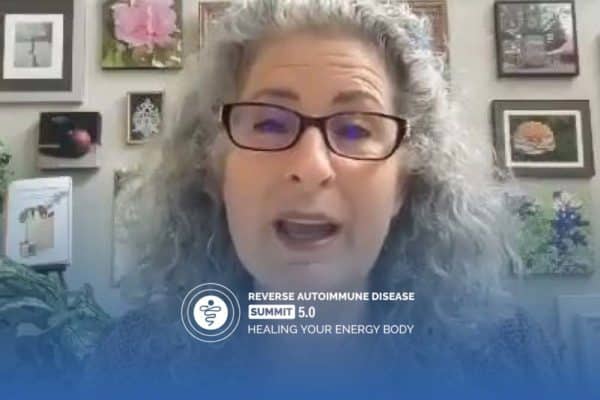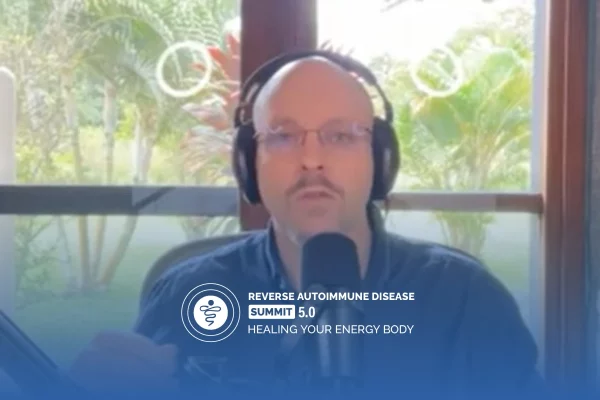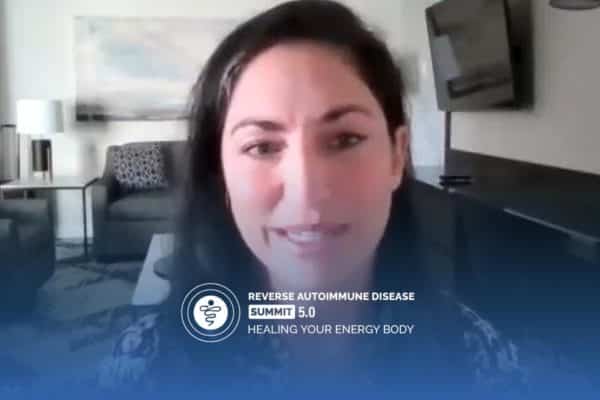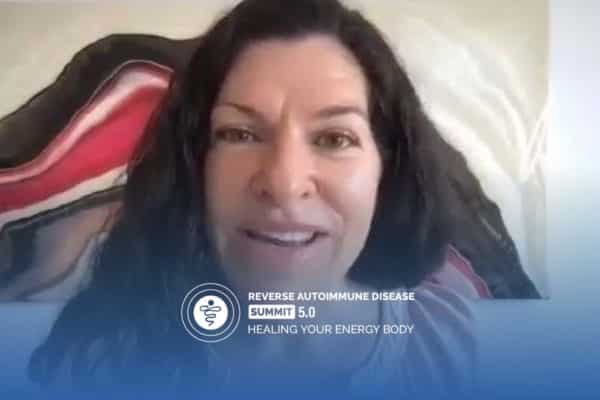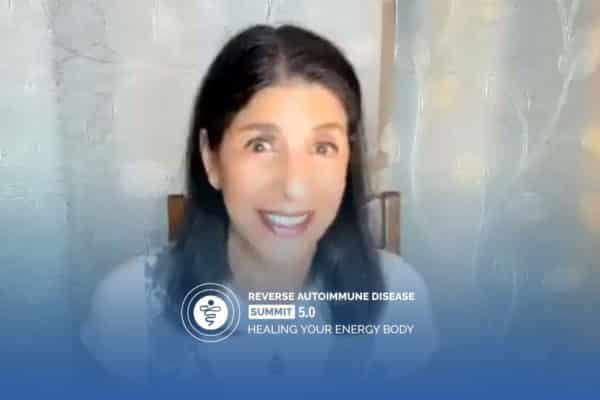Join the discussion below
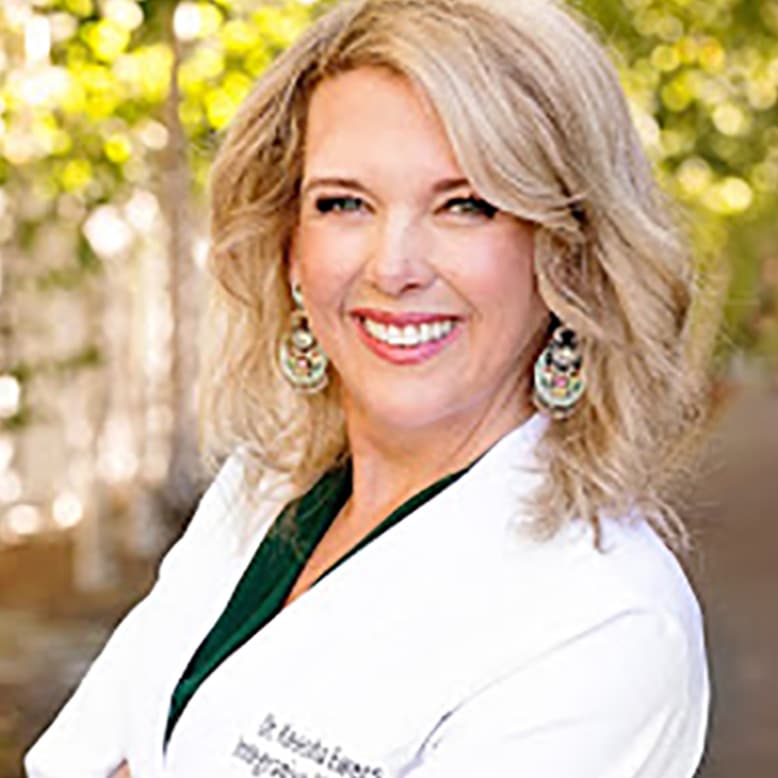
Keesha Ewers, PhD, ARNP-FNP-C, AAP, IFM-C
Dr. Keesha Ewers is an integrative medicine expert, Doctor of Sexology, Family Practice ARNP, Psychotherapist, herbalist, is board certified in functional medicine and Ayurvedic medicine, and is the founder and medical director of the Academy for Integrative Medicine Health Coach Certification Program. Dr. Keesha has been in the medical field... Read More
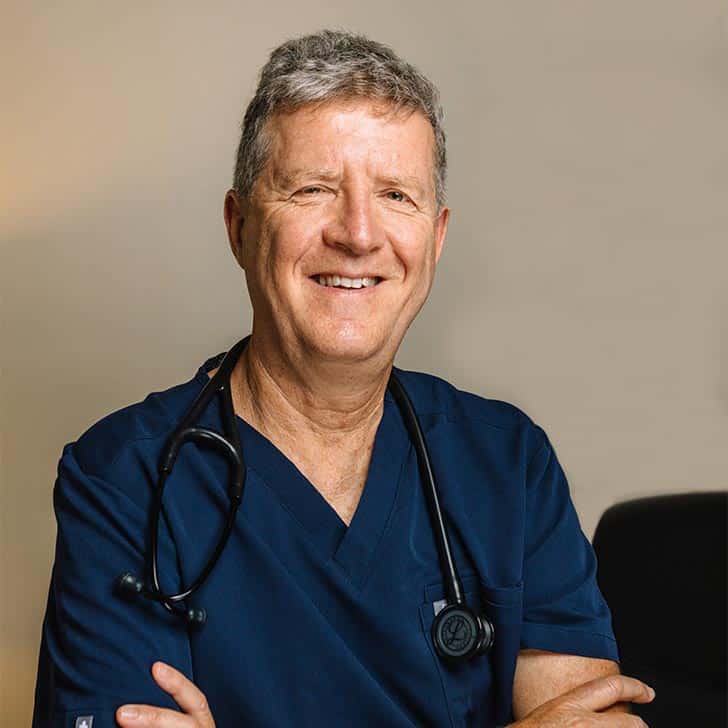
Isaac Eliaz, MD, MS, LAc has been a pioneer in the field of integrative medicine since the early 1980s, with a focus on cancer, immune health, detoxification and mind-body medicine. He is a respected formulator, clinician, researcher, author and educator, and a life-long student and practitioner of Buddhist meditation. With... Read More
- Know the difference between balancing and boosting your immune system
- Discover solutions to balance your immune responses and achieve optimal health
- Untangle the risks of using certain herbs to boost your immune system
Keesha Ewers, PhD, ARNP-FNP-C, AAP, IFM-C
Welcome back to the Reverse Autoimmune Disease Summit Series, everybody. This is Version 5.0, Healing the Energy Body. So we’re exploring all things that have to do with the body itself and how genetics express themselves, how the gut turns out to be in the shape that it’s in, toxic burden, trauma, stress, all of it, because it all affects the energy body. And you’ve hopefully caught my first interview with Dr. Isaac Eliaz He’s a pioneer in the field of integrative medicine since the early 1980s with a focus on cancer, immune health, detoxification, and mind, body medicine. He’s a respected formulator, clinician, researcher, author, and educator, and a lifelong student and practitioner of Buddhist meditation. With 30 plus years of training experience, he’s a highly skilled practitioner who offers a unique holistic approach to health and healing. His extensive background in Western medicine and translational research, traditional Asian medicine and complimentary modalities has earned him recognition as an expert, innovator and leader in the integrative treatment of complex chronic conditions, such as autoimmune disease and cancer. In 2001, he founded the Amitabha Medical Clinic in Santa Rosa, California, where patients come from all around the world to receive leading edge patient-centered treatment and care. Welcome back.
Isaac Eliaz, MD, MS, LAc
Thank you. Thank you so much for having me again and for having the opportunity to talk about such an important topic.
Keesha Ewers, PhD, ARNP-FNP-C, AAP, IFM-C
Yes, in our last interview, you gave a brief introduction to the concepts in your book, “The Survival Paradox.” Can we go back over those a little bit and see how that impacts autoimmune disease before we move forward with what to do about it?
Isaac Eliaz, MD, MS, LAc
Yes, of course, of course. So “The Survival Paradox” really offers a paradigm shift in how we think about our health, our life, and what drives illnesses. We are all aware in the integrated holistic field and now much more in Western medicine because of the COVID cytokine storm that inflammation really drives every chronic disease and also acute diseases like sepsis. But inflammation is really not the cause. Inflammation is the result. And what really drives inflammation is our survival response. And that’s the paradox. We are built to survive. Every cell in our body, every tissue in our body, every organ in our body, us as a whole person, our societies, et cetera. And you can go to the macro. And as such, our survival is automated. So the moment the body feel that it’s under danger, when it’s under stress, when it’s being challenged, when it has to repair, it triggers an automatic nervous system response through the sympathetic autonomic nervous system that results either in fighting, fight or flight, fighting which equates to inflammation. Or flight, hiding, running away, which results in fibrosis in creating a micro environment where we’re trying to hide our issue. And in this sense, the topic of discernment, the energy body is so important because we may not see it physically first, but it’s hidden in our energy body, in how we express our emotion, in how we breathe, in which parts of our body are not as alive. And that happens in a fraction of a second.
And within seconds, a few minutes, the biochemical system wakes up. And by using different proteins called alarming proteins. And the key one I’ve been researching for almost 30 years and made some of the key discoveries, how it drives inflammation fibrosis, and we can block it, is Galectin-3. Galectin-3 binds, it’s like the bus. It hears there is a problem in the kidneys. It goes to the kidneys. It attaches to different inflammatory compound, allergic compound, hyperviscosity compound. It brings them to the tissue, and there the inflammation starts. The problem, it doesn’t end. And in this sense, what we are trying to do to preserve our life, actually degrades the quality of our life, causes illnesses, drives them, shortens our life. But also from the point of view of our energy body, moves us from a place of relaxation of normal metabolism on a physical level, on an emotional level, on a psychological level, psychospiritual level, into a state of stress, of survival, of feeling like we can’t take a deep breath on a cellular level. And all of these are major and key drivers of autoimmunity. In fact, they are prerequisite for the autoimmune response. And I can elaborate about it a little bit more later in the interview.
Keesha Ewers, PhD, ARNP-FNP-C, AAP, IFM-C
So when we talk about, I had mentioned when I was introducing you, I call it the four corner pieces of the puzzle. Like everyone is different. Everyone’s going to have a little different picture. There’s not one thing that makes us thick and there’s not one thing that can get us better. I think of it as critical mass. And so when I think about each of us as individual puzzle, I always say the four corner pieces are genetic, your gut health, toxic burden and stress and trauma from childhood. And if we talk about that third corner piece of toxins, toxic burden, we are exposed to so many environmental toxins like heavy metals and pesticides. So can you talk about how those are connected to autoimmune disease and drivers of it?
Isaac Eliaz, MD, MS, LAc
Yes, of course. So when we look at a normal cell, a normal cells is functioning in a normal tissue. The normal cell recognizes that it’s part of a bigger whole, a bigger energy body, and it comes into life. It has its job, and then it dies out naturally, it’s called apoptosis and another cell comes. And in this sense, 50 trillion cells in our body, each of them has close to 1 million reactions a second, all working in harmony. The autoimmune process is a process where a cell decide that it’s not going to be in harmony with its environment. It’s misreads part of the body as being an enemy. And then it starts triggering a survival response. The survival response is affecting, can start from all these pillars that you’re talking about. So we look at genetics, it’s not only genetic, it’s epigenetics. So in my book, “The Survival Paradox,” I’m telling the story of I healed my grandma from my grandfather that I’m named after from his loss of 10 out of 10 siblings in the Holocaust, without me knowing. And now when I healed it, 50 years of pain just dissipated, but it affected my mother’s, how she relates to the Holocaust without me telling her.
So all these multi-generational effects come to us. And often, they can result in autoimmunity and it’s really not our fault. It’s genetic and it’s epigenetic patterns. When we can have a bigger picture, we don’t heal only ourselves, we also heal people around us. So putting this aside and looking at the gut, if the gut is not well aligned, if there is leaky gut, molecules that are not supposed to come into our body penetrate into the body. So this issue of boundaries, it happens on the skin. It happens in the gut. If we look at the gut, the gut is really not part of the body if you think about it. If we can eat something on one end, it will come on the other end. And it went through this one long space and nothing got absorbed. So in this sense, the gut lining is very similar to our skin in this sense. And in Chinese medicines, the lungs which relates to the skin and the gut, actually is the same element. So the gut creates this important boundary for immunity, for hormonal, and nervous system function, serotonin, 90% is made there. So when we get inflammation in the gut, because of this biosis, because of antibiotics, but key point because of toxins, especially pesticides that we are being poisoned with all the time, it affects the gut, the space between the cell growth, molecule that are not supposed to come into the body come and the body responds with an autoimmune response.
So we talked about pesticides and the toxins affecting directly on the gut. The key one is glyphosate round up 300 million pounds a year, one pound per person accumulating in our system. It disrupts the gut lining. It also can exchange with glycine in the brain and really aggravates the gut brain connection, which creates neuroinflammation that causes neurological degenerative diseases. Alzheimer has 10 times, for example, more Galectin-3, the survival protein because we are reacting, but also neuroinflammation affects our joint tails affects our immunity. And so we really have, and of course, trauma, they’re all different triggers. So for the toxins, it’s part that unfortunately we have to address every single day. I just did a study. So I developed a product called GlyphoDetox, specifically for glyphosate. And we got the first few subjects and with a dramatic decrease in glyphosate with the GlyphoDetox. But then-
Keesha Ewers, PhD, ARNP-FNP-C, AAP, IFM-C
I wanted- Excuse me . So I wanted to mention that sometimes when people hear the word glyphosate, that they think, oh, I don’t need to worry about that because I eat organic. But as you mentioned, so many tons of roundup are being used by our neighbors, All public domains, like parks and golf courses. And like we are all exposed to glyphosate. It is not just about organic or non-organic produce. So this is a very important subject for everyone to pay attention to.
Isaac Eliaz, MD, MS, LAc
Right, and what happened, we can see, I was mentioning, when we use this product and we lowered glyphosate dramatically, but these people live next to soy field and corn fields. And we are still able not to prevent a significant rise, but if they weren’t taking a supplement, they would be back to spiking. And then you look at this population, you see overweight, you see metabolic diseases and you see a lot of autoimmunity because we have a disruption of the normal collagen structure, collagen and connective tissue is very rich in glycine, and glyphosate which is the smallest amino acid. Glyphosate is almost identical to glycine, so it can exchange and it will weaken your tendons it will effect neuroinflammation. And the moment you have gut inflammation, as you said, one of your four pillars, it equates to autoimmune illnesses. So in this sense, we have to address, we really have to address toxins on an ongoing basis. I’ve done a lot of work on heavy metals. In fact, the Galectin-3 blocker I developed Pectasol is well published in its ability to remove lead and mercury and arsenic and even uranium.
And I’ve now done some work with mycotoxin, but pesticides somehow have been overlooked. It’s not that we all aware of it, you are aware of it, I’m aware of it, but we kind of say, what can we do about it, it’s everywhere. Like you said, you can eat, or you can grow organic vegetable garden. If they use glyphosate 10 miles away in a flat surface through the water table, it’s going to come to you. So in this sense, we got to do it and we got to address it. And I’m very glad because it’s something that I’ve really jumped into it in the last two years, because my clinical result from the studies and feedbacks from patients, you can really remove it. And it’s key just like you mentioned, you got to do it in the context of taking care of the gut. So you got the biofilms, which creates a micro environment when it’s unhealthy, the biofilms backbone is Galectin-3. So when you use something like modified citrus pectin, you dissolve the unhealthy biofilm, and there are a lot of studies we publish with the USDA showing that Pectasol is the prebiotic and it helps when we fight infections. But then we have to address pesticides on an ongoing basis.
And then once we get a handle on it, and we are reducing the toxic burden, and we work on the other pillars, in traumas and people hear traumas a lot, and am sure we had speakers on the topic. But what trauma really means from an autoimmune, what does it mean? It means that we react to a stimulus that happens right now as I’m talking to you. And we respond to each other. When we have traumas, the response is not necessarily related to what’s happening to us right now. It’s related to a trigger from our past that is then translated on a neurological pathways with memory reconsolidation, through somatic effect and through effect on our energy body. It’s amazing what happens when we start breathing, when we relax and we say, wow, you know, right. When your experience, there is so much space. And there is so much space in the mind. And then there is endless space in our heart. And when we can really let our heart open, then everything can heal. So all of these causes, we got to address them. And I wanna emphasize for the people listening, autoimmune diseases are one category where integrative medicine is extremely effective.
Keesha Ewers, PhD, ARNP-FNP-C, AAP, IFM-C
In fact, not just effective, but essential. You’re not gonna get it.
Isaac Eliaz, MD, MS, LAc
Exactly, yeah, oh yeah. On prevention, and I-
Keesha Ewers, PhD, ARNP-FNP-C, AAP, IFM-C
There’s no any other way.
Isaac Eliaz, MD, MS, LAc
I remind myself, like when I was thinking about this talk and I go over my bad day, and I’m very busy now with lot of exciting things, but a lot of work. And then I say, okay, then I kind of opened my body, and I just feel how the light energy quality just takes over even. And then I know the moment it’s happening, any tendency for autoimmunity is melting away.
Keesha Ewers, PhD, ARNP-FNP-C, AAP, IFM-C
Yeah.
Isaac Eliaz, MD, MS, LAc
Because there’s harmony on a cellular level, and this is something that everybody can do. And all these disruptors, if it’s genetic, epigenetic, if it’s a gut, if it’s toxins or it’s traumas, it’s not who we are, you know?
Keesha Ewers, PhD, ARNP-FNP-C, AAP, IFM-C
Right.
Isaac Eliaz, MD, MS, LAc
It’s how we are being changed by these positive factors. And unfortunately, it’s a journey. It’s not like we do it and its stops. But as we take this different path, other qualities of life start shifting, because we don’t have an autoimmunity way of thinking. Don’t feel like we’re in a fight. We move-
Keesha Ewers, PhD, ARNP-FNP-C, AAP, IFM-C
This is what I always think of. You mentioned the word boundaries and I hear this a lot with the gut lining is the boundary and we have to have good gut boundaries. I always say leaky boundaries of the mind create leaky boundaries in the gut. And so the first boundaries we hold, ’cause sometimes when people hear about emotional, energetic or mental boundaries, they think they have to have a boundary against all those toxic people out there. And I always say, no, the first boundary we have is with our own selves, with our own thoughts, that that’s the first boundary we have that becomes with full integrity. And in Buddhist thought there are 18 different steps to perception, right? So we have 18 steps we go through and right midway in the middle of it is the gateway to karma. And like the way that they tracked it all those years ago was however you thought about one thing is how you’re going to think about it forever, unless you take time to open that gateway to karma and actually to shift it. And so that boundary establishment is so essential on that internal perceptual level. And it affects everything.
Isaac Eliaz, MD, MS, LAc
Well, it’s what life is about. And from every tradition, wow. I mean, it’s really my own journey. I think I mentioned, I spent 20 years, two to three months a year in the mountains meditating. So I spent a little bit of time on this, I can say.
Keesha Ewers, PhD, ARNP-FNP-C, AAP, IFM-C
Yes, yes.
Isaac Eliaz, MD, MS, LAc
And “The Survival Paradox, ” what I call open heart medicine is a simplification of this training and treating the meditation masters in the Himalayas. But you are so true. So really what you offered now is easier heard than done because it’s a journey and that’s really the mastering. Very few people will get to the deepest, deepest level. But the idea is the essence of our existence. And from a practical point, it’s the essence of our autoimmunity. Because what is fighting, what is survival? That’s really the last chapter of the book. My book is freeing “The Survival Paradox.” It’s really a door, a hint to what you’re saying, because survival is holding to something which is changeable and not accepting that it’s gonna change.
Keesha Ewers, PhD, ARNP-FNP-C, AAP, IFM-C
Yes.
Isaac Eliaz, MD, MS, LAc
So there are places in the gap between our thoughts and the gap between our exhalation and inhalation. And eventually when there’s a true freedom in the mind, that’s when you recognize that everything is free to begin with, if you think, or if you don’t think. And that’s how, when I had a chance to treat some great masters in the Himalayas and they would’ve very chronic diseases, and they would like get cured in 24 hours I was like, wow. And I was told, whatever you tell them they have, they’re gonna have it the next day because they don’t hold. If you tell them they’re gonna be okay, everything will go away because their mind is not holding. And then it translate to the energy body and it translate to tissue. And it all start with creating these habits. Just like you said. We hold to one thing and then we respond based on it in the future. That’s a profundity of life.
Keesha Ewers, PhD, ARNP-FNP-C, AAP, IFM-C
There’s a little me, my posted not too long ago. And it was, learn to listen deeply, not from the place of your wounds, but from the present moment. And that is a process that requires practice, practice, practice, practice, practice. It’s not a one and done, it’s not a pill you can take. It’s not something that is ever over. Listening deeply is something that is just, it goes deeper and deeper and deeper the more you practice it and that’s called integration. When you integrate. So that’s really beautiful. I mean, that affects our energy body so powerfully, yeah.
Isaac Eliaz, MD, MS, LAc
And it’s interesting if we think about what takes us to the past, it’s our head.
Keesha Ewers, PhD, ARNP-FNP-C, AAP, IFM-C
Yep.
Isaac Eliaz, MD, MS, LAc
It has to keep us in the moment and has to keep moving is our heart, right? If we don’t think, and don’t hold to things, we feel like our head is shut down. If we don’t flow and stay in the moment and don’t hold, we are dead. The moment the heart stops getting and giving, transforming dirty blood into clean blood on an ongoing basis. The moment it turns from a journey into a static, fixated position, we are dead. It doesn’t work anymore. And that’s why the transformative power is moving from our head to our hearts. And that’s the infinite healing power of love and compassion not just words, is a responsiveness to whatever arises in our reality, compared to a reactivity that is survival-driven and trauma-driven and toxin-driven, et cetera, et cetera. And we sure are in a reactive state of the world right now. And we can see what happened. Where activity equates inflammation and inflammation equates fires and global warming, intention. And within it, each of us is an opportunity. Every small light when it’s dark makes a big difference.
Keesha Ewers, PhD, ARNP-FNP-C, AAP, IFM-C
Yeah, I’m aware that as we’re talking, we talked about the wisdom of the heart and there’s also the wisdom of the body. And you mentioned a minute ago about apoptosis, which is natural cell death, which is supposed to happen. And in different parts of the body, it happens at different stages. And in terms of cardiac cells, turnover really fast, you know? And so when we think about it that way, and Ayurvedic medicine says the mind crystallizes in the body. So the body is the canvas of the mind’s activity, right? And so if we’re holding onto mycotoxins and heavy metals and pesticide, there’s an element of holding on in the mind too. And autoimmunity is when fire that you just mentioned called tejas in Ayurveda burns up “Ojas” or life force vitality, and destroys the “prana” between the cells. The communication is no longer there. So that’s how come it can make mistakes because the body has its innate wisdom. But when the mind gets in there and holds onto the wounding and the toxins of the emotional nature and mental nature, then all of it just plays out in the body.
So I was thinking about this because people have detoxed reactions. Are highly sensitive. And when we think about detox reactions, how do we help people do this gently? Because if the mind says, I always think about four P’s in autoimmunity, perfectionism, people pleasing, holding onto the pain of past poison. And then also the Pitta dosha, lots of fire in Ayurveda. So sometimes someone that has that personality or that mindset that’s perfectionistic will take something that like you or I say, and then concretize around it and have to do it perfectly. And so then they’ll have that aggressive nature in their detoxification, and it’s not a gentle approach that they have with their body. Like a curious, compassionate collaboration. It’s more of a, I gotta get this out of me, you know? And so can we talk a little bit about that?
Isaac Eliaz, MD, MS, LAc
Oh my gosh. I mean, what you talk now, honestly, not just symbolically is hours of discussion, but you’ve said something we have such a similar way of thinking and it’s not often I do a lot of these summits. You talked about something huge. I wanna start, we hold in our mind when they detoxify. So you see it with this whole mast cell activation.
Keesha Ewers, PhD, ARNP-FNP-C, AAP, IFM-C
Yes.
Isaac Eliaz, MD, MS, LAc
You can see a patient that has the same set of symptoms, multiple allergies, multiple problems, but they don’t identify with having a problem like mast cell activation. Oh my God, they can tolerate supplements.
Keesha Ewers, PhD, ARNP-FNP-C, AAP, IFM-C
Yep.
Isaac Eliaz, MD, MS, LAc
They can tolerate different foods. You see the same patient which conceptually has this mast cell activation, what is it, and that really relates to autoimmunity? What is mast cell activation? We are alarmed where we are not supposed to. So the classical image in Chinese medicine is somebody sits like a nomad, sits in the desert and there is somebody walking 10 days walk away. The Chinese of them coming to their places one in a 10,000, they’re already anxious. So this is what MCA does, it is anxiety. And it’s what affects detox and creates a problem. So in this sense, it’s interesting. So you covered it from a mental point of view, and that’s why the journey of healing is a journey of letting go. That’s the whole thing. We’re letting go by creating space. And we’re letting go by melting our heartness with the warmth and love of our heart. So that’s really the journey of healing. But when we look at it in a practical way, I look at my work. So for example, I’m a pioneer in Therapeutic apheresis. I filter the plasma, but for inflammatory condition, not for the classical high cholesterol. So what am I doing? I’m treating the person outside their body bigger than the body. So on one end, you can see what we’re talking from a meditation point of view. But this, when we are trying to detoxify is part of our trying to change things, the natural response of the body’s inflammation.
And inflammation is driven by Galectin-3. So often we talk about binders for toxin, and it’s kind of funny and sad. People talk about modified citrus pectin in the same category, like other binders, no. There are binders, and there is a compound that blocks Galectin-3, attenuates the unhealthy inflammatory response, and binds in the same time. So we will see that people who use modified citrus pectin do not get eczema reaction. And I always say that this idea about having aggravation during detoxification, this healing crisis, a lot of it is really excuses for not designing a program in a wise way, by putting too much force and too much energy and too much holding instead of doing it in a very gentle way. And in this sense, detoxification is what we do in the majority of the time. When we exhale, we let go. When we inhale, we nourish, while our exhalation is twice as long as our inhalation. So we actually detoxify more times than we nourish. If we wanna take a deep breath, we can’t do it if we hold our air, we have to exhale. When we come to this world, we come in exhaling and crying. And when we leave this world, it’s a final exhalation a profound experience.
If somebody sit next to a dying person, is the last exhalation. The total letting go. So in this sense, we do it all the time. And that’s what you talked about, the integration, right? We got to find this gap because if we don’t let go, that’s karma from a scientific point of view, we create a habit and then the habit repeat itself. It creates an epigenetic trait that passes on. It’s amazing. I teach this diagrams in my meditation and healing, which is about past, present and future affecting us in multigeneration and healing for decades. Now, epigenetic came suddenly. I’m not a crazy guy. It’s like, there is science around it. So in this sense, I have a chapter on detox in my book and people talk about detox, but what is detox? Like, what do you want to get rid of as part of… So twice a year, spring and fall are good times to do detox because these are changing seasons. And of course, if you are sick.
So the first part is, what do you want to get rid of? Then how do you expose the area that are problematic, which creates micro environment boxes. You will say flame, Kapha in Ayurvedic sticky areas. Last time I checked, mold and fungus and MAL toxins don’t grow in the sun when it’s dry, they grow in dumpy dark areas like an unhealthy biofilms in the gut or like our sinuses that are these non ventilated areas. Or we hold them in our emotions. It’s all interrelated. I think for the people who are struggling with autoimmunity or treat it, it’s really important that what you’re doing and we’re doing in this conversation, we are giving a bigger context because when we have a bigger context, we need less details. They become more effective. And if we just details without the bigger context from so many trees, you don’t see the forest.
Keesha Ewers, PhD, ARNP-FNP-C, AAP, IFM-C
I just wanna put a pin in that and just have everyone breathe that in. Because I find with the information aids that we live in, sometimes I’ll get emails from people that say, can you tell me what SNP is the one. The one SNP in my genetics that has activated my autoimmune condition. And then they’ll go dive, is there a resource you can give me where I can read about my SNPs? And my response is always, if you get too buried into the bark of the tree and are unable to come back and forth and look at the forest, and then the detail of the bark, then you get stuck, and you’ll burrow into that. And it creates that same frenetic, frenzied energy that the autoimmune disease is thriving in.
Isaac Eliaz, MD, MS, LAc
Exactly, yeah. It’s a fuel, and it’s interesting. So SNPs are important, but they’re just a part of the puzzle. And they’re more ergonomic. We are interested in the phenotypic and what happened on the practical. What is different between Ayurvedic medicine, Chinese medicine? We understand the genetic patterns, the tendencies, the elements of, but we are looking in how we can change the movement without worrying about these details. Because if you change the movement, everything is going to change. And in this sense, just like methylation was overdone, and I was when it started and some doctor were telling me, oh, you have to methylate all your vitamin. And I told my staff, you watch, you watch what’s gonna happen. It’s gonna be a rebound. If everything needed to be methylated, nature would’ve done it. Nature is wise, so we see this.
So all of these are pieces that are important, but I think what we are emphasizing is that we have to understand the movement of autoimmunity because it’s remarkable. You have seen it, I’ve seen it. Somebody with autoimmunity come into a meditation and healing retreat with good food. And Ayurvedic is so powerful in this sense. I have patients who go to India just for the three week classical cleansing. And suddenly, wow, the rheumatoid factor is gone. But if they haven’t dealt with their emotions, give it two or three months, it’s gonna be back. There isn’t integration. So in this sense, it’s a journey, but the doors are very different. There are people are very blocked emotionally, psychologically. That’s okay, you start with a physical, that’s your door, but at some point, the door is gonna open. Sometime it opens wide open. And sometimes it’s like, like a friction of a second and we gotta catch you.
Keesha Ewers, PhD, ARNP-FNP-C, AAP, IFM-C
I could get the rheumatoid arthritis that expressed itself in my body in my early 30s back within probably six months if I really tried, because the genetics are still there, my grandfather had it. And I mean, I can activate that if I go back to the way that I used to think and feel, and behave in the world and my perfectionistic drive, and see, and having self-compassion and compassion for the nature of what it is to be human and the impermanence we’re surrounded with and attachment and inclusion, all those things. So I could go back to that and I would be sick again. So it really is less about what is there in your genetics and more about, well, how do we collaborate with that.
Isaac Eliaz, MD, MS, LAc
Of course, there’s a beautiful saying in Hebrew, it’s an ancient saying, which means translated, Everything is predetermined, that genetics, but we have a choice, that’s epigenetic. And so it’s totally, we have a choice if the gene is going to express itself or not express itself, we have a choice right now. We have a choice with every breath. I always tell people, your life can change with the next thought, with the next breath, because part of it is accepting whatever happened in our life, it is the best we could have done. Why, because everybody always wants to survive. It may have been-
Keesha Ewers, PhD, ARNP-FNP-C, AAP, IFM-C
And how it’s designed for.
Isaac Eliaz, MD, MS, LAc
Exactly, so it helped us at some point, and now it’s becoming destructive, and this is buried into the traumas. And let’s remember, the gut is supposed to nourish, all the way to the ileocecal valve, a very important pivot between nourishment and elimination, and then it’s supposed to eliminate. But if we don’t let go, if we hold to traumas, the gut is not gonna eliminate. It’s gonna hold. It’s gonna hold the toxic stuff, which is not ours anymore. The physiology of the gut from a psychological point, and then what happens, you’ll get inflamed. Gut will get autoimmune or ulcerative colitis and Crohn’s, and you’ll get leaky gut and you’ll get extra intestinal autoimmunity. And the thing is that it’s all part of this amazing picture, which in one level is complex, but on the level of our discussion, it’s extremely simple. It’s just too simple for us to recognize it.
Keesha Ewers, PhD, ARNP-FNP-C, AAP, IFM-C
So neurohormonal pathway, hormones of course are messenger chemicals. So whatever we perceive is sending a message to the rest of the body .
Isaac Eliaz, MD, MS, LAc
Immediately, immediately. So those are that people say, it’s biochemical. Yeah, it’s biochemical, but it’s biochemical because of the energy body, the mind have triggered it. So how do you change it? You can change it biochemically, but it’s the lowest level of medicine, replacement therapy. It means you gave up on the hormones on your ability to heal, and you’re going to give a replacement. So this is like insulin for somebody with diabetes. But can you recreate the cells? For example, it’s interesting, people with diabetes for 30 years, they get a vaccine called BCG and they start to excrete insulin again after 30 years. So the body like we talked because everything is changeable, everything can regenerate itself. And it’s really autoimmunity is this balance between destruction and regeneration.
Keesha Ewers, PhD, ARNP-FNP-C, AAP, IFM-C
So for those of you that know the destructive force of cortisol being released from the adrenal glands in perpetuity, right? Not just in segments of real danger, but when it’s always happening, that’s not happening because the adrenals just think that’s a good idea, it’s happening because your mind is saying something.
Isaac Eliaz, MD, MS, LAc
Right, exactly. And it’s interesting, there’s some medicinal mushrooms have some interesting roles also in autoimmunity. So the famous mushroom, Cordyceps sinensis in winter worms, summer grass. It grows in 13 and 14,000 feet in the Himalayas actually I had the opportunity to pick them up. So it grows in the stressful environment and it just will survive. So what it does it nourishes and moisturizes the lungs and like giving the fluidity connectivity, but also strengthens the adrenals with an adaptogenic. Because when our adrenals relax, our autoimmunity tendencies go down because we move from a survival mode and from a sympathetic response, which we know is part of the adrenal neuro transmitter hormone, neurohormones we move into a place of balance. Cortisol goes down, as the result insulin goes down suddenly as a cell field, we’re not in danger. So from a biochemical point of view, we can now use glucose much better. We produce ATP. So it boils all down to metabolic function to mitochondrial function, but you can’t isolate the bad news for the people who just wanna rely on orthomolecular and change the biochemistry. Life is bigger than this. Life is bigger than biochemistry, but it’s one part. And that’s why you can see how people’s metabolism can change relatively quickly, because we have a choice how the cell is gonna function.
Keesha Ewers, PhD, ARNP-FNP-C, AAP, IFM-C
Let’s talk a little bit about specific, you started with mushrooms and immune regulation. And do you have more to talk about when we talk about real specific interventions through autoimmune disease from the mushroom kingdom?
Isaac Eliaz, MD, MS, LAc
Yes, definitely. So mushrooms have a unique quality to clean up stuff from the past because mushrooms eat everything. They have the quality of enhancing a proper immune response in the moment and about training the immune system to respond appropriately in the future. So different mushroom with different parts of the body will do different things. So Reishi, for example, Reishi or lingzhi Ganoderma will help the heart, will help the lung, will help to detoxify the liver and prevent fibrosis, hepatitis moving into cirrhosis of the liver. So also will affect the joints. There are mushrooms which are very important in the relationship between the digestion and the liver, maitake and Shiitake. There are mushroom will specifically help you process food better, Fuling, Wolfiporia cocos. And then there are different Hericium more for the stomach and different mushroom for different parts.
So I do this thing, I have this… So I use mushrooms as unique way for diseases where I actually grow them on specific herbs. But I also have this formula called 10 Mushroom Formula, which is I call the ultimate mushroom multi nutrient. So I cover all the body systems from the point of view, not only of the organs, but addressing the past, supporting the present and training into the future and better glucans which are highly present in mushrooms are very effective prebiotics. So they really affect the gut. So there are mushroom will help us to absorb toxins. So if we do this and we block Galectin-3 with modified citrus pectin, we have a basis, and then we got to address pesticides, we got to address mycotoxin, and that’s why my work is like for detox. And then we have to support circulation.
Keesha Ewers, PhD, ARNP-FNP-C, AAP, IFM-C
So I wanna, before we move on to that, the name of the modified citrus pectin that you have developed that I’ve been using recently, and I love it is Pectasol. So I would love to have you speak to that a little bit.
Isaac Eliaz, MD, MS, LAc
So modified citrus pectin is a generic name, so there are a lot of borrowed science. So Pectasol is close to 80 published papers on different condition or different health issues, including issues that relate to autoimmunity. So practically all the research was done on Pectasol. And we have shown the effect of our modified citrus pectin in attenuating the abnormal immune response. For example, I published a very important papers showing that when you induce sepsis in animals and you block the process by giving modified citrus pectin, you attenuate, you stop the rising Interleukin-6 the damaging cytokine, the kidney damage and death. And so the idea is that when you use this, in my opinion, it’s the most important supplements somebody can use. Not because I developed it almost 30 years ago. It wasn’t this way if you look at my child 20 years ago. Because we now understand the fundamental role of Galectin-3 in driving inflammation. In fact, I just got a very large NIH grant to study removal of Galectin-3 with plasma filtration as a treatment for sepsis.
So there’s also recognition in the top research institutes. So when we create this basis and also because Pectasol can remove heavy metals and can dismantle the biofilm and change this unhealthy micro environment, it is such an important role and interesting when you look at the effect of modified citrus pectin on joint health, it’s more effective for the autoimmune highly inflamed joint issues. And the reason is that osteoarthritis is more of a degenerative normal aging process, while autoimmunity is an abnormal process from abnormal response. And it’s interesting, we are seeing better results in these cases which are supposed to be more difficult. And within it, we have to remember, we have to preserve circulation. The blood and oxygen has to get into the tissue. And in this sense, different circulating formulas and nattokinase and lumbrokinase, and from the Ayurvedic Tibetan medicine point of view, Padma Basic, which is dozen and dozen of published papers. You look at the research on these traditional formulas interesting what we talked about, which by the way, are not concentrated herbs.
Padma Basic is an approved drug for peripheral artery disease in Europe for decades, so it’s an approved drug, but it’s not concentrated. It’s a natural herb, just like the way it’s used. And when you look at it, you see from the ’80s already research on connection between circulation, inflammation, hyperviscosity, and ineffective response to infections. This is research almost 40 years ago. The recognition that, and if you look at this, these are pillars that drive autoimmunity. So there is no surprise that you see research on these different compounds in the field of autoimmunity, just because of this regulatory effect and normal flow. And also autoimmunity is highly responsive to dietary and lifestyle changes, highly responsive. So really autoimmunity is really a condition that definitely can be prevented, but can be treated. And your stories is in evidence for this. And so it’s really to inspire people that there is a solution.
Keesha Ewers, PhD, ARNP-FNP-C, AAP, IFM-C
Did we talk enough about GlyphoDetox?
Isaac Eliaz, MD, MS, LAc
I think so. I mean, GlyphoDetox, now we are seeing our research it’s also, we are seeing a reduction in Ochratoxin A, the most toxic mycotoxin. But glyphosate has to be addressed because we have gotten of a conscious that we can have a little bit of poison is okay. And it’s not true, it’s not okay.
Keesha Ewers, PhD, ARNP-FNP-C, AAP, IFM-C
No, the is the one that kind of puts that out there.
Isaac Eliaz, MD, MS, LAc
Exactly.
Keesha Ewers, PhD, ARNP-FNP-C, AAP, IFM-C
Because so many tons get put into the environment. And every year the Environmental Protection Agency puts the bar up of what’s acceptable. None.
Isaac Eliaz, MD, MS, LAc
Exactly.
Keesha Ewers, PhD, ARNP-FNP-C, AAP, IFM-C
None, zero that’s acceptable.
Isaac Eliaz, MD, MS, LAc
Exactly, exactly. Zero is acceptable. So we see when we see people using a product like GlyphoDetox, some people, their memory is better. For some people, their heart is functioning better. For some people, their autoimmunity is better because as you said, it’s pieces of the puzzle. But without addressing toxins, things like autoimmunity really cannot be shifted, and Panchakarma does it so deeply, but you got to do your inner work also. And you gotta give it a fair chance. If we keep being bombarded with toxins, we don’t have a fair chance because we take one step forward and two steps back. So that’s why we need this support of removal toxins on an ongoing basis.
Keesha Ewers, PhD, ARNP-FNP-C, AAP, IFM-C
Thank you so much, Dr. Eliaz for spending this time with us.
Isaac Eliaz, MD, MS, LAc
Thank you.
Keesha Ewers, PhD, ARNP-FNP-C, AAP, IFM-C
And just what you’ve put out into the world is so beautiful. And I just encourage everybody to read “The Survival Paradox” and take a look at the supplements and try them for yourself. They’re really great.
Isaac Eliaz, MD, MS, LAc
Thank you, thank you very much.
Keesha Ewers, PhD, ARNP-FNP-C, AAP, IFM-C
All right, everybody, until next time, be well.
Downloads

